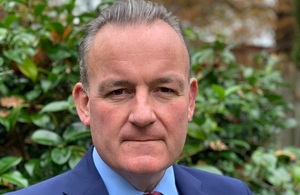Our Megan scoops prestigious skills award
Megan Robertson won the ‘Intermediate Apprentice’ category at the National Skills Academy for Nuclear (NSAN) Awards.
The awards are organised by UK Nuclear Skills and Cogent Skills. They highlight excellence in the nuclear sector and recognise rising stars of the present and future.
Megan has worked for Sellafield Ltd for 3 years as an apprentice nuclear operator.
She said:
When I started my apprenticeship, I was quiet and unsure about what I could achieve. I’m now much more self-confident, proud of the skills that I have developed and delighted to of won this award.
Two other Sellafield Ltd employees were recognised on the night. And Sellafield Ltd itself, alongside training partner Gen2, were finalists in the ‘Best Employer and Provider’ category.
Luke Doran, a 5th year process engineer degree apprentice, was shortlisted in the ‘Higher and Degree Apprentice’ category.
He said:
Being a finalist shows my hard work hasn’t gone unnoticed and it gives me a great deal of pride in what I’ve managed to achieve.
I’m incredibly grateful for the support I’ve received throughout my apprenticeship.
Luke Crampton, who is working towards his chartership in IChemE design systems was also shortlisted for ‘Graduate of the Year’.
He said:
I was delighted to be shortlisted for this award and grateful to the company for putting my name forward.
The nuclear industry provides technical challenges which put my skills to the test while helping to better myself as an engineer.
Sellafield Ltd and Gen2, our engineering and technology training provider, were shortlisted in the Best Employer and Provider Category.
Sellafield Ltd has approximately 600 apprentices on its books with qualifications ranging from level 2 (GCSE equivalent) to level 6 (degree level) across 15 schemes.
The company also has more than 120 graduates on a 2-year programme across 24 disciplines.
Gen2 has 5 training centres across Cumbria working with over 300 clients delivering a range of short courses and apprenticeship programmes with progression routes into employment and higher education including honours degrees.
Donna Connor, head of education and skills for Sellafield Ltd said:
Being shortlisted in this category is testament to the recruitment and support provided by Sellafield Ltd and the excellent training provision of Gen2 in West Cumbria.
We have such a diverse range of apprenticeships, including nuclear welding inspection, fire and rescue and business administration, and this award emphasises the exciting career opportunities at Sellafield Ltd and the nuclear industry.
Having 3 people shortlisted and Megan going on to win, highlights the excellent calibre of apprentices on our books – I couldn’t be prouder.
Amanda Towers, Managing Director of Gen2 said:
We were extremely proud to have been shortlisted for this category.
It’s testament to the long standing collaboration and partnership between Gen2 and Sellafield Ltd and our shared purpose to ensure we provide high quality training for many hundreds of Sellafield apprentices.
We believe the success of the partnership is due to the shared understanding of nuclear sector, passion for training development and delivery and a flexible and responsive approach that enables training solutions which are high quality and fit for purpose.
